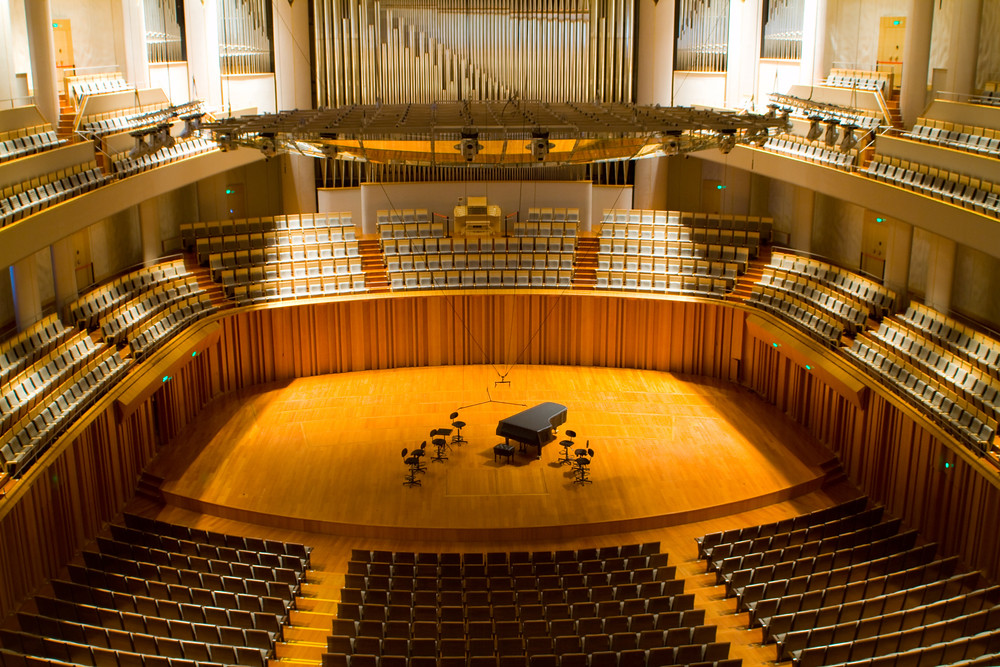
-Eckart Preu, conductor
The Musician’s Way, p. 212
Musicians who can transfix audiences succeed because of more than their artistry and charisma alone.
Spellbinding concerts result from the combined effect of the performers, venue, and the focus of this post: programming.
Here are 7 guidelines to help rising musicians craft successful concert programs.
7 Tips to Design Successful Concert Programs
1. Know Your Audience
Just as different foods suit varying age groups, settings, and times of day, programs should be tailored to specific people and occasions. For an audience of aficionados, let’s say, you could include experimental or avant-garde titles. But for listeners who aren’t familiar with your style, or for casual family-oriented events, it’s usually best to stick with approachable music and mix in entertaining spoken program notes.
Update: The following two articles provide more detailed strategies to understand target audiences and design winning concert programs:
2. Choose Music You Can Handle
Opt for repertoire that allows you to express yourself freely and perform with ease and confidence. Never program music that outstrips your technical ability.
3. Begin with Welcoming Music
Like hors d’ouevres before a banquet, your opening selection whets listeners’ appetites. Start with straightforward music that introduces an audience to your sound and enables you to settle in.
4. Vary the Energy

5. Indulge and Surprise
When people attend concerts, they bring expectations with them, which will be influenced by your program titles and marketing strategies. Memorable concerts, though, take audiences beyond what they can envision. So, create expectations, and then surpass them.
“Create expectations, and then surpass them.”
6. End Strongly
Conclude most programs with high-voltage impact, placing your most intense selection last. Then, when appropriate, offer up dessert-like encores.
7. Evaluate
Use self-reflection and feedback from others to advance your programming skills and refine your creative process. Weigh audience reactions, review your concert videos, consult colleagues and mentors, and regularly sketch ideas for fresh programs.
All of these tips are fleshed out in Chapter 11 of The Musician’s Way where you’ll also find three sample programs.
Related posts
Let’s Get Relevant
Partnering with Non-Profits
Preparing for Portfolio Careers
Programs that Pop
Self-Evaluation: The Key to Artful Practice
© 2012 Gerald Klickstein
Photo © michaeljung, licensed from Shutterstock.com

Thanks for the tips, I’m still new to concert programming.
Thank you for a great article. I’ve posted a link to this for my Helpful Harp Hint Tuesday this week.
Thanks for the link, Barbara, and the kind words. Hope you’ll visit often!